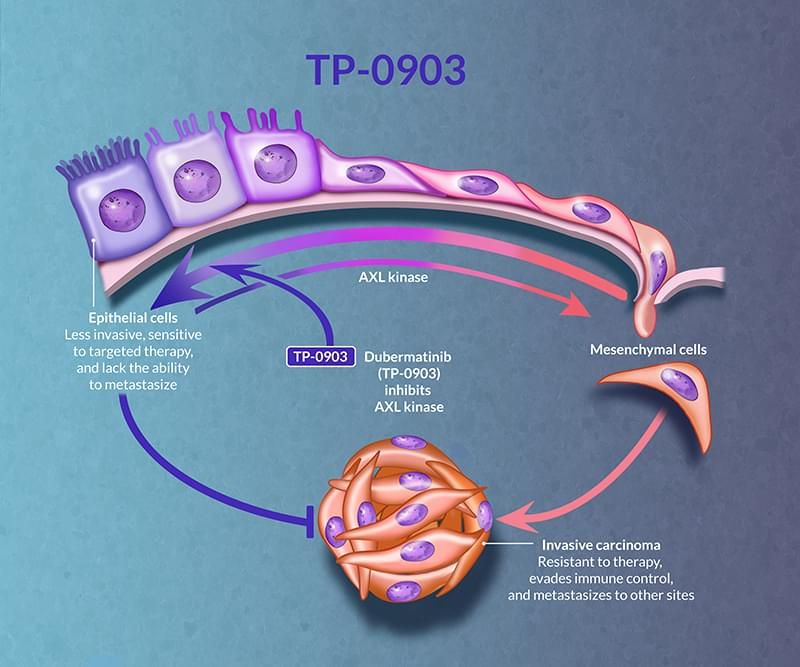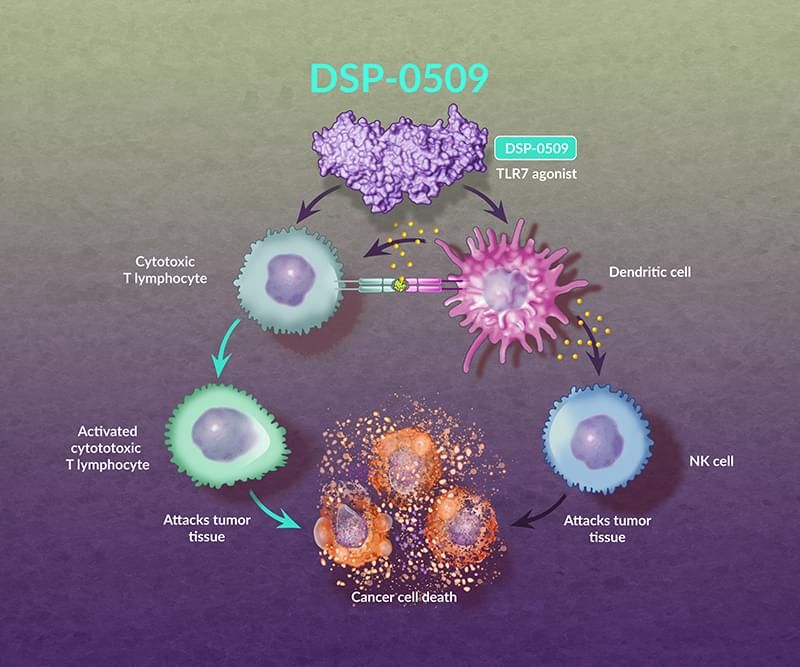
Sumitomo Pharma Oncology, Inc. products
Sumitomo - Menin-MLL Binding Inhibitor
DSP-5336 is a small molecule inhibitor against the binding of menin and mixed-lineage leukemia (MLL) protein. Menin is a scaffold nuclear protein that plays various key roles in biological pathways, including cell growth regulation, cell cycle control, genomic stability, bone development, and hematopoiesis.26,27 Binding of menin to MLL fusion and wildtype proteins leads to the upregulation of HOXA family and MEIS1 genes that function to stall myeloid cellular differentiation and induce leukemogenic transformation.26,28,29 Preclinical evidence shows that the disruption of fusion and wild-type menin-MLL interactions inhibits leukemic cell proliferation and restores terminal differentiation of MLL-rearranged and nucleophosmin 1 (NPM1)–mutated leukemic cells.26,30
Dubermatinib - AXL Inhibitor
Dubermatinib (TP-0903) is an investigational inhibitor of AXL receptor tyrosine kinase (RTK), a protein known to be involved in acquiring resistance to chemotherapeutics, immune evasion, and developing metastatic capacity in cancer cells.9-11
Sumitomo - Investigational Oral CDK9 Inhibitor
TP-1287 is an investigational oral CDK9 inhibitor that has shown favorable oral bioavailability in preclinical models. TP-1287 is enzymatically cleaved, yielding the active moiety, a potent inhibitor of CDK9.35 Inhibiting CDK9 is thought to downregulate the transcription of target genes, including MCL-1, reducing leukemic blast viability in MCL-1–dependent hematologic malignancies, and c-MYC, an important oncogene across multiple tumor types.36-38
Sumitomo - TLR7 Agonist
DSP-0509 is an investigational Toll-like receptor (TLR) 7 agonist, which is hypothesized to induce cytokine production, activate cytotoxic T lymphocytes, and sustain immune-mediated antitumor activity.14
Sumitomo - Ombipepimut-S Emulsion WT1 Immunotherapeutic Cancer Vaccine
Ombipepimut-S Emulsion (DSP-7888) is an investigational immunotherapeutic cancer vaccine containing 2 peptides that induce WT1-specific cytotoxic T lymphocytes (WT1-CTLs) and helper T cells to attack WT1-expressing cancerous cells found in various types of hematologic malignancies and solid tumors.1,2 Researchers have identified that adding helper T-cell–inducing peptides improved WT1-specific CTL induction, which may contribute to tumor cytotoxicity.1





